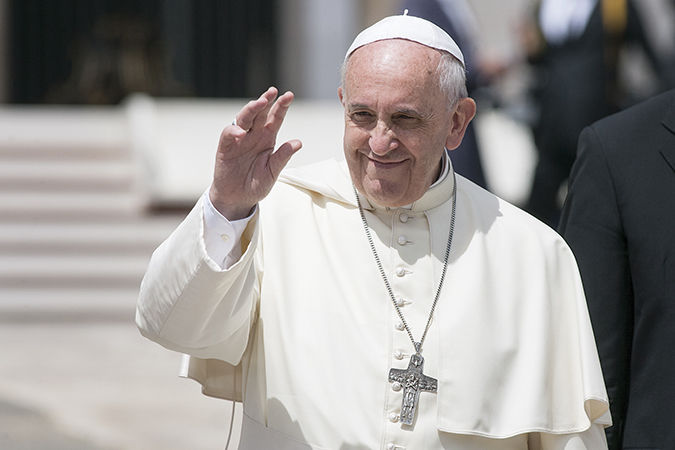“This is a workshop to evaluate the pope’s first two years, and — spoiler alert — he did good,” said a smiling Jesuit Father Thomas Reese as he kicked off his engaging, positive discussion, eliciting laughter from hundreds of Congress-goers.
“It’s just a whole new ball game with this pope. … He is super popular,” continued Father Reese. In fact, according to recent Pew Research Center statistics, as he approached the two-year anniversary of his papacy (March 13), Pope Francis enjoyed a 90 percent favorability rating among U.S. Catholics (94 percent favorable among self-described conservative Catholics), and was rated favorably by 70 percent of all Americans, regardless of their religious affiliation.
The top reasons for this “Francis effect” fall into three key categories, according to Father Reese. The first is “style” — from the pope’s simplicity in attire, to the simple words he used to greet the world when he was introduced as pope (and his humility in requesting a blessing from those gathered in St. Peter’s Square), to his ongoing effort to encourage more open discussion, especially during synods.
The second category is “pastoral priorities” — including the pope’s focus on a “Church that is poor and for the poor,” which will serve the poor (through charity), accompany them (with love) and defend and advocate for them (by seeking justice). And the third area where Pope Francis has drawn global attention is in seeking “change in the public presence of the Church” — by being a vocal critic of capitalism and globalization, encouraging interreligious dialogue and much more.
Father Reese, who previously served as editor of America magazine, is a senior analyst at the National Catholic Reporter and an author and editor of several books. In addition, each year he presents parish and university talks across the country.

